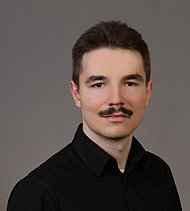
Doctoral Project
Der Gemeindebesitz der Donkosaken. Entstehung und Entwicklung bis 1835
The Communal Land Tenure of the Don Cossacks. Origins and Evolution till 1835
The Don Cossacks have left a deep impact in Russian history. By participating in the wars of Muscovy and of the Russian Empire they made a major contribution to the expansion of the Czardom. From the ranks of the Don Host however, have also risen such famous rebel leaders like Stepan Razin and Emel'jan Pugačev, who shook the foundations of Czarist power with their bloody uprisings. In comparison to such military highlights, the economic and social life of the Don Cossacks played only a minor role in historiography. The economical basis of the Don Cossacks was their land, which was granted to them by the Czars for their military service. It is all the more remarkable, that the Don Cossack did not individually own his land, but collectively with the other members of his community, the so called stanica. The Statute of the Don Host from the year 1835, in reliance upon allegedly already existing traditional norms, declared the transfer of Cossack land into private property to be illegal and regulated the use of the common soil as follows: pastures had to be used collectively, whereas the croplands and the hayfields had to be divided among the community members for individual use. Therefore, the communal land tenure of the Don Cossacks appears at initial examination to be a direct analogy to the agricultural commune of the Russian peasantry. In regard to the redistributional commune of the peasants, which is known as mir, it can be said, that its formation was caused by the introduction of the poll tax under Peter the Great and by the collective responsibility of the peasants for tax payments and feudal duties. The origins of the communal land tenure of the Cossacks however, cannot be explained by fiscal reasons, because the Cossacks were tax-exempt. Starting with this problem I pose in my PhD project following question: What factors led to the formation of the communal land tenure of the Don Cossacks and how did it evolve to the point of its codification in 1835?
Curriculum Vitae
Born in 1990 in Dsheskasgan/Kazakhstan. Studied history at Leipzig University from 2010 to 2017; title of the master thesis: "The Soviet Economic Reform of 1965-1970. A Chance for Renewal or a Dead End?". Since November 2017 doctoral student at the Graduate School for East and Southeast European Studies.
Positions, Assignments and Memberships
- Member of the Member of the Study Group "Language, Knowledge, Practices"
